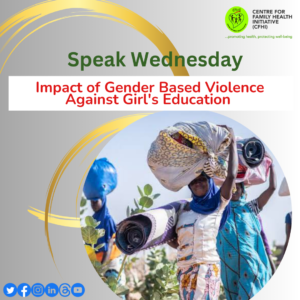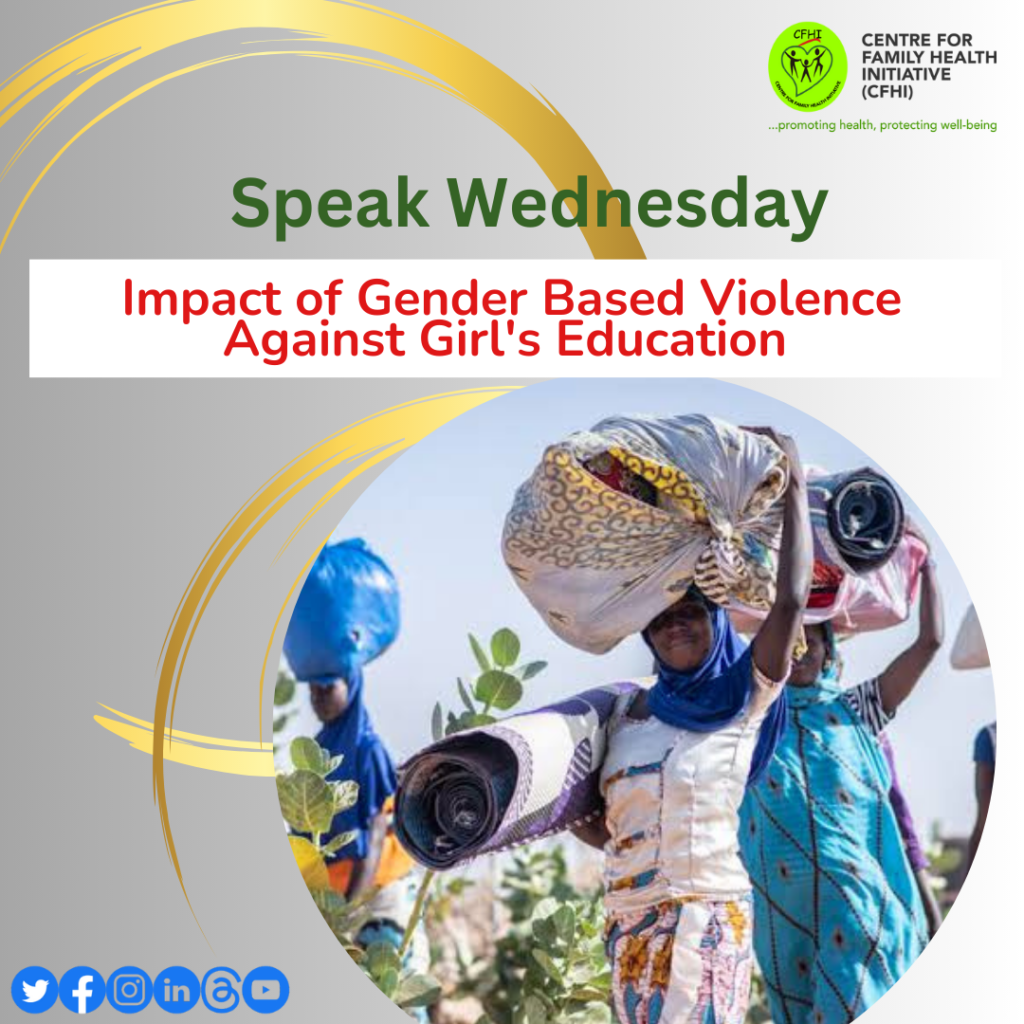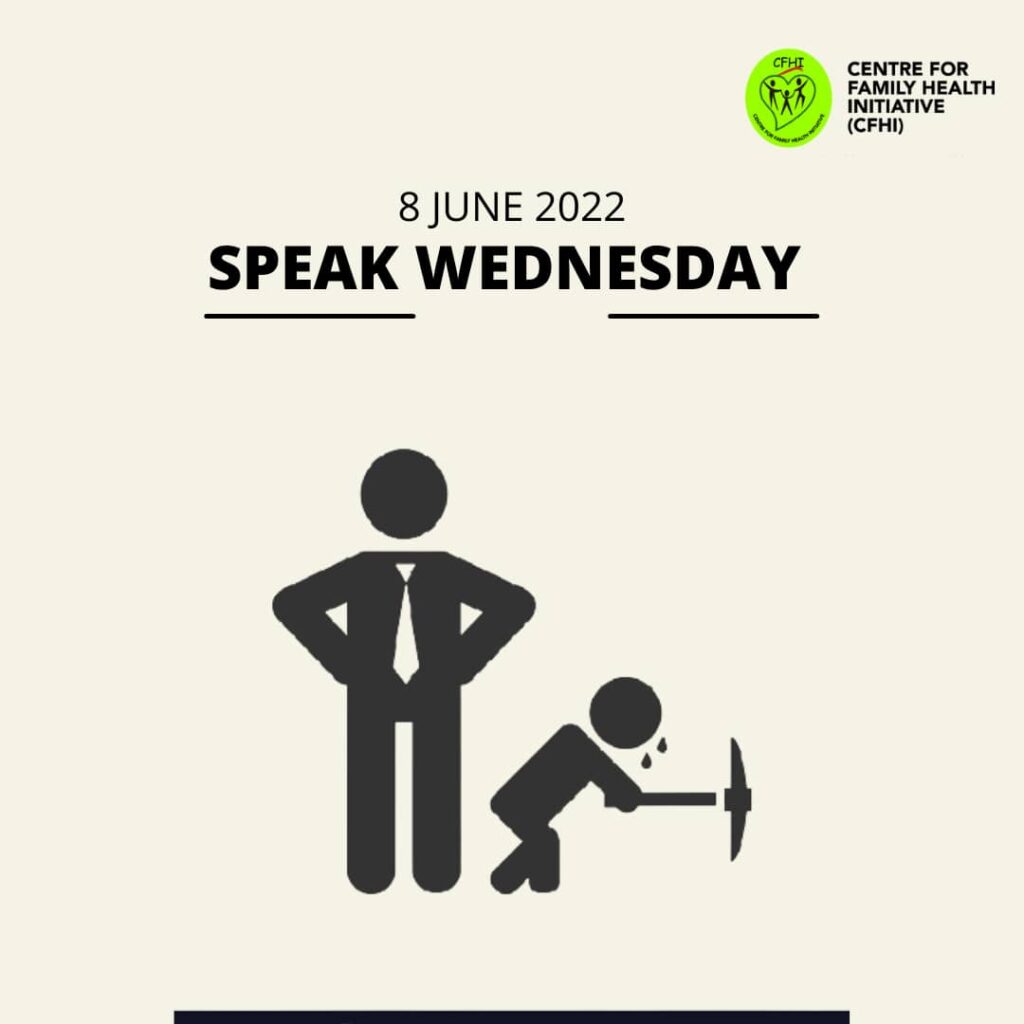SPEAK WEDNESDAY ON IMPACT OF GENDER BASED VIOLENCE ON GIRLS’ EDUCATION
Gender-based violence (GBV) is the most prevalent yet least obvious human rights violation in the world, according to UNICEF. It involves impairment to a person’s bodily, sexual, mental, or financial health brought on by socially accepted gender power disparities. Threats of violence, coercion, and deprivation of liberty—in public or private—are also included.
There are several types of gender-based violence: In every country, there are shockingly high instances of intimate relationship violence, as well as sexual assault, child marriage, female genital mutilation, trafficking for sexual exploitation, female infanticide, and “honour” crimes.
GBV is frequently identified as a serious impediment to girls’ regular school attendance. Fear of violence, harassment, or assault can keep girls at home, preventing them from participating in academic and extracurricular activities. This fear-driven absenteeism, as recorded by UNICEF, results in missed classes and can eventually lead to girls dropping out of school entirely. As a result, their educational path is plagued by gaps, limiting their long-term chances.
Beyond the physical consequences, the psychological stress caused by GBV has a long-term impact on girls’ academic achievement. According to UNESCO, the aftermath of violence can emerge as anxiety, despair, and low self-esteem, impairing children’s ability to concentrate, learn, and actively participate in school activities. This psychological cost detracts from their overall learning experience.
UN reports that the complicated link between GBV and harmful practices such as early marriage and pregnancy is also obvious. For females who have been subjected to violence, the pursuit of education may be overshadowed by societal standards that promote marriage and child-rearing. Early marriage frequently results in girls dropping out of school, creating a cycle of limited education and limited possibilities.
To address the issue of domestic violence and its impact on girls’ education, the government, civil society, international organizations, and individuals can confront gender-based violence head on and create a society in which girls are free from the cycle of violence and have access to high-quality education to succeed in life.
Speak Wednesday is an initiative of CFHI to address issues around gender-based violence and gender bias.
#SpeakWednesday #GBV #Girl’srights #Girls’Education #genderequality #genderbias

SPEAK WEDNESDAY ON IMPACT OF GENDER BASED VIOLENCE ON GIRLS’ EDUCATION Read More »











